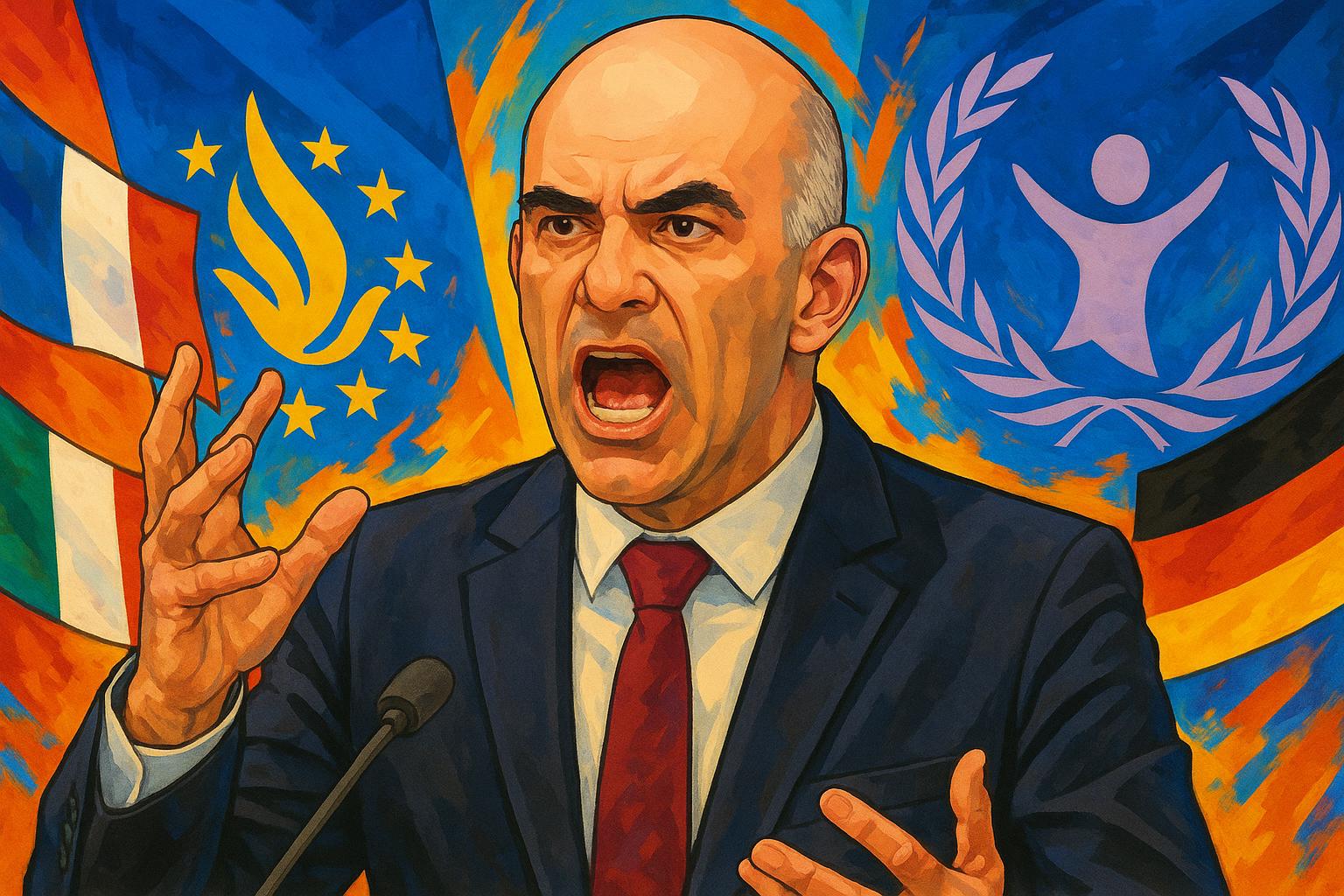Alain Berset, the Secretary General of the Council of Europe, has underscored the need for the European Convention on Human Rights (ECHR) to evolve while steadfastly upholding its foundational principles. In a recent interview, he acknowledged the mounting scrutiny directed at the 75-year-old treaty, especially amidst a shifting political landscape across Europe, but urged that any potential reforms must emerge from a shared commitment to democratic values.
Berset, who assumed his role earlier this year, articulated that the legal framework of the convention—applicable to 46 member states including the UK—should not be regarded as sacred or unchangeable. "We are witnessing a world where things are changing rapidly," he remarked, noting an acceleration of societal shifts that necessitate open dialogue on the rules governing human rights. "We need adaptation. We need discussion about the rules that we want to have, and there is no taboo," he added. Nevertheless, he remained firm that any changes should respect the core tenets of the ECHR.
These comments come at a time when political pressures are mounting in several European nations to reform the convention's scope, particularly in response to persistent migration challenges. Kemi Badenoch, leader of the Conservative Party in the UK, is poised to advocate for an even more stringent stance, suggesting that the nation should contemplate withdrawing from the ECHR. She argued that the treaty currently hampers the UK's capacity to effectively address migration issues, stating, “I have thought long and hard about this, and I am increasingly of the view that we will need to leave, because I am yet to see a clear and coherent route to change within our current legal structures.”
Human rights organisations have voiced significant concern regarding the rhetoric surrounding potential reforms, warning that any attempts to dilute the convention's scope might endanger protections for vulnerable populations, including refugees fleeing conflict zones. Critics highlight that the ECHR plays an indispensable role in holding governments accountable on critical issues such as detention practices, border management, and state surveillance.
The debate has intensified following an open letter from nine European leaders—including those from Italy and Denmark—who called for enhanced national control over migration policies. The letter, dated May 22, argued that the European Court of Human Rights’ interpretations overly constrain national governments, particularly in the realm of deporting migrants who have committed crimes. They asserted that current legal frameworks hinder authorities from managing migration effectively, despite recent data from Frontex revealing a 27% decline in unauthorized border crossings.
Berset responded to the evolving situation by reaffirming the independence and impartiality of the ECHR, emphasising that judicial bodies must not be subject to political manipulation. He maintained that the court plays a vital role in protecting human rights and cautioned against attempts to politicise its operations. This highlights a broader tension in Europe, where rising nationalism often positions the court as an unelected body perceived to undermine national sovereignty.
The Council of Europe remains steadfast in its commitment to uphold the convention's principles while acknowledging that addressing contemporary issues—such as migration—requires careful consideration and an unwavering dedication to human rights. As discussions around the future of the ECHR continue, the challenge lies in balancing national interests with the collective responsibility to protect human rights across the continent. The call for reform, while urgent, must not erode the very values that the convention was designed to safeguard.
📌 Reference Map:
- Paragraph 1 – [1], [4]
- Paragraph 2 – [1], [2], [5]
- Paragraph 3 – [3], [6]
- Paragraph 4 – [4], [5]
- Paragraph 5 – [6]
Source: Noah Wire Services
